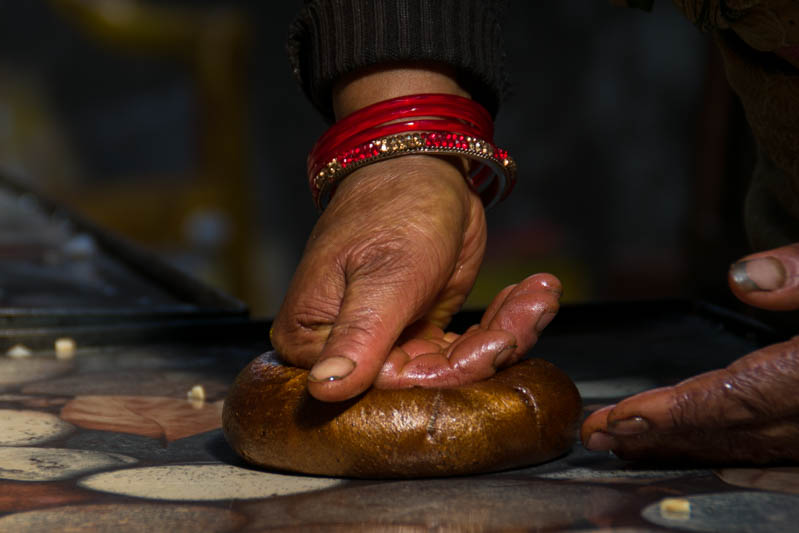

With some time left for the Maghe Sankranti, the industrialists of Tokha, the northern region of Kathmandu, have been invited to make chaku.
Along with the trend of eating chaku during the Maghe Sankranti, 14 industries operating in Ward No. 2 and 3 of Tokha Municipality have been invited to make chaku this time.
Chaku, which is a delicacy made of jaggery, sugarcane juice, ghee and nuts, is produced in Tokha and are being sold in Asan, Indrachok, Bhaktapur, Patan, Kirtipur and outside the valley in Narayanghat, Pokhara, Butwal, Biratnagar and other cities in Kathmandu Valley.
According to Krishna Shrestha, President of Tokha Traditional Chaku Preservation Society, the chaku produced here are in demand in countries including Japan and Australia.
In Newari language, ‘tu’ means sugarcane, ‘khyah’ means ‘growing place’. Tokha is a famous place for sugarcane cultivation and knife production.
Rajkaji Shrestha, the owner of Tokha Chaku Industry, who has been producing the sweet taffy in Tokha for almost five decades, said that Tokha chaku are in demand not only in Nepal but also in different parts of the world. According to him, even though it’s demand is high, it is difficult to reach the market.
In the Tokha industry, plain chaku, masala chaku, special chaku, white laddus, black laddus, Bombay laddus, pushtkari, bhuja laddus, badam laddus etc. are produced.
Shankraj Pathak, the chief administrative officer of the municipality, says that the Tokha municipality has also announced the branding of the chakus produced here in the policies and programs of the current financial year. “The municipality is committed to take the knives produced in Tokha to the international level”, he said.
Tokha Kathmandu is in Zone No. 5. Pradeep Poudel, the newly elected Member of Parliament of Kathmandu Region No. 5, said that he would take initiatives to take Tokha’s knife to the international level. “Tokha is a famous area for chakus, I aim to make it known to the world“, he said.
Chaku produced in Tokha are now being sold at Rs 130 to 135 per kg. In Newari culture, it is customary to eat the sweet taffy on the 1st of the Nepali month of Magh (December/January). The Newar community has a custom of eating chakus during the Kajaria too.
It is believed that consuming chaku has many benefits for the body, as well as developing the ability to fight disease and it is good for children and the elderly to eat chaku in the winter months.